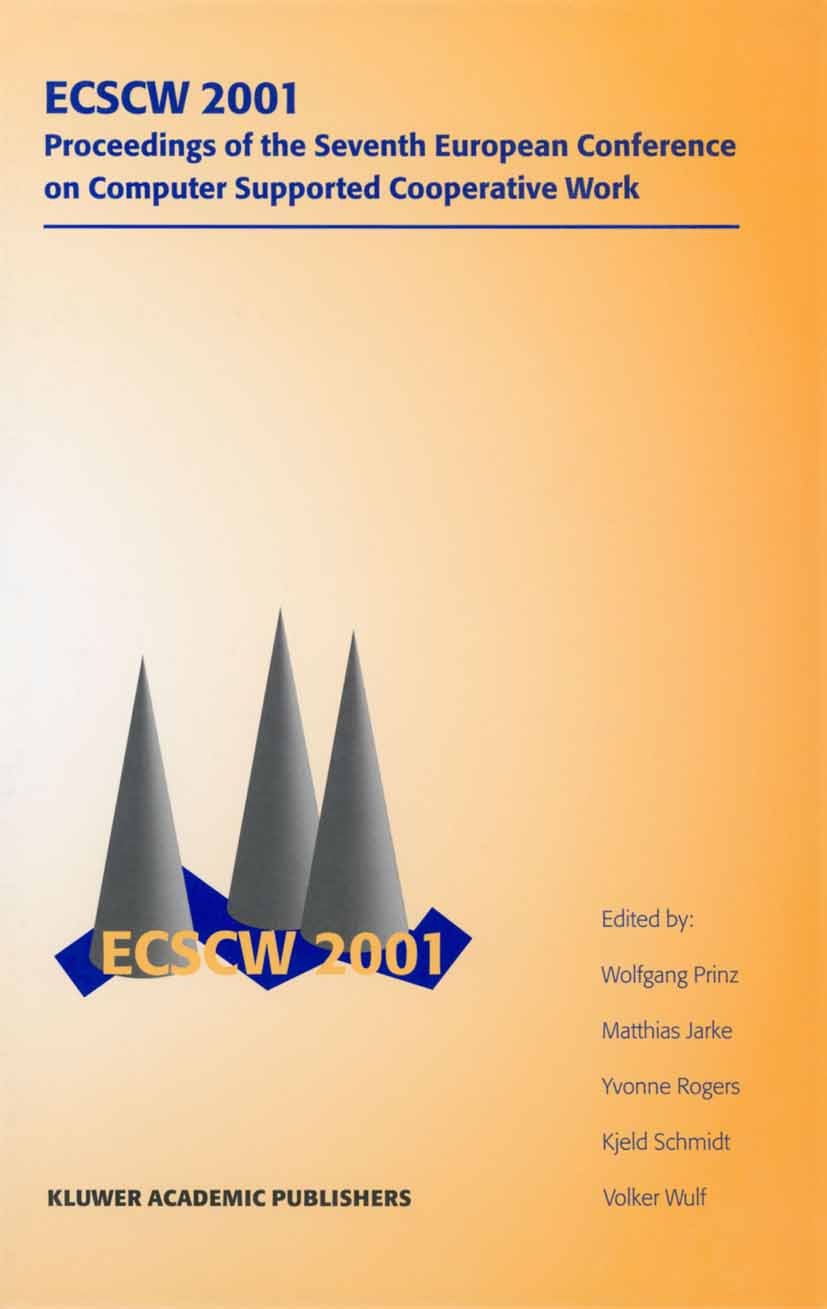| 书目名称 | ECSCW 2001 | | 编辑 | Wolfgang Prinz,Matthias Jarke,Volker Wulf | | 视频video | http://file.papertrans.cn/301/300316/300316.mp4 | | 图书封面 |  | | 描述 | Schmidt and Bannon (1992) introduced the concept of common information space by contrasting it with technical conceptions of shared information: Cooperative work is not facilitated simply by the provisioning of a shared database, but rather requires the active construction by the participants of a common information space where the meanings of the shared objects are debated and resolved, at least locally and temporarily. (Schmidt and Bannon, p. 22) A CIS, then, encompasses not only the information but also the practices by which actors establish its meaning for their collective work. These negotiated understandings of the information are as important as the availability of the information itself: The actors must attempt to jointly construct a common information space which goes beyond their individual personal information spaces. . . . The common information space is negotiated and established by the actors involved. (Schmidt and Bannon, p. 28) This is not to suggest that actors’ understandings of the information are identical; they are simply “common” enough to coordinate the work. People understand how the information is relevant for their own work. Therefore, individuals engaged | | 出版日期 | Book 2001 | | 关键词 | Groupware; automata; communication; complexity; computer; computer-supported cooperative work (CSCW); cont | | 版次 | 1 | | doi | https://doi.org/10.1007/0-306-48019-0 | | isbn_softcover | 978-0-7923-7163-2 | | isbn_ebook | 978-0-306-48019-5 | | copyright | Springer Science+Business Media B.V. 2001 |
The information of publication is updating

|
|
 |Archiver|手机版|小黑屋|
派博传思国际
( 京公网安备110108008328)
GMT+8, 2026-1-1 21:07
|Archiver|手机版|小黑屋|
派博传思国际
( 京公网安备110108008328)
GMT+8, 2026-1-1 21:07


